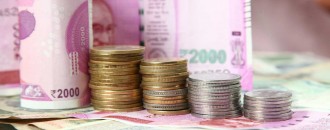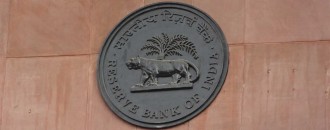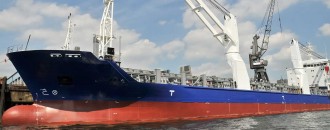
India to save Rs.30k cr on imports by allowing commercial coal mining: CRISIL
The Dollar Business Bureau The Government’s move to allow commercial mining of coal by private sector will not only enhance production but also help in cutting the import bill by around Rs.30,000 crore, through substitution of imported non-coking coal with local production, according to the global rating agency CRISIL. Last month, the Cabinet Committee on Economic Affairs (CCEA) has approved the methodology for auction of coal mines/blocks, under the Coal Mines Act, opening up the commercial coal mining for private sector. “The move to allow the private sector to commercially mine coal will boost both production and mining efficiency. Moreover, the substitution of imported non-coking coal with domestic production could save roughly Rs.30,000 crore of coal imports,” CRISIL said in a statement. At present, ...

Infra sector has suffered in India due to under-investment: Amitabh Kant
The Dollar Business Bureau NITI Aayog CEO Amitabh Kant said on Thursday that the infrastructure sector in India has suffered on account of under-investment for a long time. Kant pitched for channelling pension and insurance funds to finance infrastructure projects and also to completely re-examine the scheme of Viability Gap Funding (VGF). “We need to build up environment to tap pension and insurance funds for investments in infrastructure projects. VGF scheme needs a complete re-examination,” he said at CRISIL India Infrastructure Conclave in New Delhi. Launched in 2004, VGF scheme meant to support infrastructure projects that come under the public-private-partnerships (PPPs). VGF means a one-time or deferred grant to support the projects that are economically viable but are not financially ...

Rupee appreciation dents exporters profitability: CRISIL
The Dollar Business Bureau The strengthening of rupee against the dollar in past few months might have squeezed the margins of profit of exporters during the first quarter of this fiscal, global credit rating agency CRISIL said. “The sharp appreciation in the rupee against the dollar in recent months is likely to have dented the first-quarter (current fiscal) profitability of exporters that source locally and have limited pricing power,” CRISIL said. Since January, the rupee has increased by more than 5% against the dollar. It closes at around 64.54 on Tuesday. A weak currency benefits the exporters, however, it makes imports, foreign education and travel more costly. An analysis by CRISIL of the top ten export-oriented industries shows textiles, leather, seafood, meat and basmati rice are highly vulnerable ...

Cement sector may see incremental demand due to increase in infra spending by government, CRISIL
The Dollar Business Bureau "We foresee a sharp recovery in demand this fiscal after demonetisation dealt a major blow, leading to a 1.2% de-growth last fiscal,” rating agency CRISIL said on Monday. The cement sector may see incremental demand outpace the incremental supply in the coming three fiscals due to the government’s spending on infrastructure, the rating agency said. According to the agency, incremental demand could be doubling to 48 million tonne when compared to the past three fiscals, while incremental supply is seen moderating to a fifth to 31 MT from 39 MT. Demand is likely to increase due to the government’s increase in expenditure on railways, urban development and roads the report detailed. "The industry should be able to rack up 5-6% ...

NPAs of banks to rise to 10.6% by March 2018: Crisil
The Dollar Business Bureau The gross non-performing assets (NPAs) of banks in India will increase to 10.6% by March 2018 from 9.5% in March 2017, said a rating and research firm in a report. However, there is a fragile revival in the credit quality of the corporates. But the pressure in the banking system is likely to continue in the financial year of 2017-18 and it may reach to 10.6% by March 2018, Crisil warns in a report on Monday. “Credit quality of India Inc is gradually recovering, but the underpinnings remain fragile because some sectors continue to struggle and several large companies remain highly indebted,” it said. The report further said that the gross NPAs of banks that had crossed over Rs.14 trillion ...

Note ban pulls prices down; Jan retail inflation at 3.17%
PTI Impacted by note ban, retail inflation fell to multi-year low of 3.17 per cent in January and may prompt the Reserve Bank to have a re-look at its hawkish monetary stance in the next policy due in April. Retail inflation has declined because of the impact of cash crunch following demonetisation of old Rs 500 and Rs 1000 notes with effect from November 9, 2016, experts said. In its policy last week, RBI retained the benchmark interest rate and changed the stance from 'accommodative' to 'neutral', indicating that there won't be any rate cut in near term. It may however have to review its policy stance in the wake of retail inflation touching multi-year low in January. ...

Retail inflation hits 23-month high at 6.1% in July
The Dollar Business Bureau Inflation based on Consumer Price Index (CPI) has escalated for the fourth month in a row to 6.1% in July, 2016 which is a 23-month high. This is mainly due to the growing food inflation at 8.4% while core inflation remained at 5.1% during last month. According to Crisil Research, an increase in CPI inflation is transitory. Normal monsoon and proactive steps taken by the government to manage food supply will rein in food inflation this fiscal. It will take one or two months for the benefit of the rains to wash away the rise in food prices. After the Reserve Bank kept its policy rate unchanged this month, Crisil expects a rate cut in October at least with more clarity ...

Indias exports may remain a weak link: CRISIL
The Dollar Business Bureau | India’s exports are likely to remain weak due to subdued global growth, research firm CRISIL said in a report on the Indian economy – ‘Choosing trend over cycle’ released on Monday. The country’s exports as well as imports have fallen down which made the trade deficit remain mute so far, and CRISIL believes this could prove transient. When there is structural weakness in the trade, imports would increase as domestic demand and investments upsurge, and commodity prices would stabilise. India’s target to double the exports of goods and services to $900 billion by FY 2020 from $470 billion in FY 2015 might prove a tad too ambitious if the current cyclical slowdown lasts and structural issues are not addressed, ...


